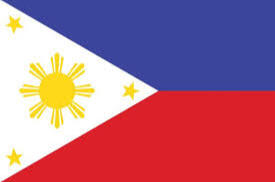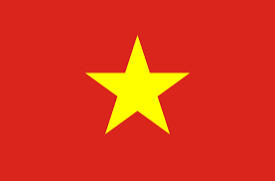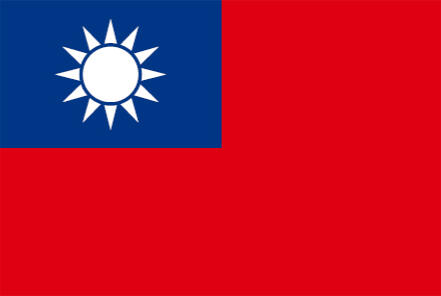Remote Staffing Services
Helping enterprises tap into the Taiwan, Philippine, and Vietnam talent pool!
Why hire remote talent?
Best Talent
Best Culture
Best Unit Economics
Best Productivity
Access to Asia's top talent pool without the need to deal with unnecessary paperwork
Hire people from:
Hassle free - stress free
How it works
1. Tell us the roles you need to fill
2. We match you with the top qualified candidates
3. Once you’ve made a successful hire, we collect a one time fee for our service
COST EFFICIENCY
Save time screening applications
We screen the applicants for you so you only need to interview the top applicants
More information on cultural differences and salary comparison:
borderless hiring
World Class Talent
No more issues with visas and time consuming paperwork. You get the talent you need as soon as possible.
fast - easy - efficient
Hire your remote team today!
Contact us:
Pricing
All prices are in US Dollars.
Philippines & Vietnam
A deposit of $500 is required for all transactions and will be deducted from the total fee.*
| Average Annual Salary of Talent | Fee |
|---|---|
| < 12,000 | 3,000 |
| 12,000-24,000 | 25% of actual annual income |
| > 24,000 | 20% of actual annual income |
*the deposit is non-refundable.
Taiwan
Non Engineering Jobs
| Average Annual Salary of Talent | Retainer | Performance Fee |
|---|---|---|
| 36,000 | 1,000 | 16.7% of annual salary |
| 36,000+ | 1,500 | 20% of annual salary |
Software/ Hardware Engineering Jobs
| Average Annual Salary of Talent | Retainer | Performance Fee |
|---|---|---|
| 36,000 | 1,500 | 25% of annual salary |
| 36,000+ | 2,000 | 25% of annual salary |
Have questions? Send us an email at [email protected].
Welcome to our Blog!
Click on a topic that interests you:
Why hire remote staff?
Case Study: How Remote Staffing Helped Trinity Scholar Alleviate its Operational Bottleneck
Remote Teams in the Philippines: Benefits, Management Strategies, and Best Practices
Vietnam’s Remote Workforce: Cultural Essentials
Effective Ways to Manage Remote Teams
How to Find the Right People for Your Remote Team
Why hire remote staff?
Remote work is no longer just a trend—it’s now a key part of the modern workforce. The COVID-19 pandemic pushed businesses to see the benefits of remote work. As companies adjusted to lockdowns, they found remote work not only kept operations going but also provided many advantages. With better technology and a shift in work-life balance, hiring remote staff is now a smart strategy. Here’s why your business should consider it:Hire the best talent from anywhere in the worldHiring remote staff lets you access a wide and diverse talent pool without being limited by location. Whether you need a software developer, creative designer, or customer support rep, the world is open to you. This flexibility helps you find the perfect fit for your team, no matter where they are, ensuring you get the best person for the job.Cost EfficiencyA key reason to hire remote staff is the potential for cost savings. By going remote, businesses can cut or eliminate expenses like office space, utilities, and supplies. Many remote workers also use their own equipment, reducing the need for tech investments. Beyond overhead costs, you can find talent in regions with lower living costs, which can mean lower salary expectations compared to your company's location.Increased ProductivityIn the face of early doubts, many studies show that remote staff often have higher productivity than those in the office. Without typical office distractions, remote employees can focus better on their tasks. Plus, the flexibility of remote work leads to a more satisfied workforce, boosting both motivation and output.Flexibility and ScalabilityHiring remote staff provides unmatched flexibility. Whether your business is expanding or facing seasonal changes, remote teams can be scaled up or down with ease. This adaptability helps you meet market demands faster than traditional hiring. Plus, having team members in different time zones allows your business to operate 24/7 without overloading any single employee.Environmental ImpactWith fewer employees commuting, your business lowers emissions and supports a greener, more sustainable work model. This benefits the environment while enhancing your company’s reputation as a forward-thinking, responsible organization.Diverse PerspectivesA remote workforce brings greater diversity in culture, background, and experience. This diversity fosters a wider range of ideas and perspectives, fueling creativity and problem-solving. By embracing remote work, you expand your talent pool and enrich your company’s culture with diverse voices that drive innovation and growth.
Hiring remote staff isn't just a reaction to changing work trends; it's a proactive move to future-proof your business. Embracing remote work helps you build a more resilient, flexible, and efficient team. In a world where adaptability is crucial, remote staff could be the competitive edge your business needs.
Have more questions about remote staffing?
Send us an email at [email protected].
Remote Teams in the Philippines: Benefits, Management Strategies, and Best Practices
The Philippines has become a global hub for remote workers, known for its highly skilled, English-proficient workforce, offering great opportunities for both employers and employees.A key advantage of hiring remote teams in the Philippines is access to top talent at competitive rates. With a lower cost of living than Western countries, companies can offer attractive salaries while still reducing overall labor costs. Filipino workers are highly educated and skilled, particularly in fields like IT, customer service, digital marketing, and creative industries. The country’s focus on education and training has produced a workforce that’s not only competent but also adaptable and eager to learn.Cultural affinity with Western countries, especially the U.S., makes Filipino remote workers highly effective in customer-facing roles, content creation, and other tasks that benefit from cultural understanding. The Philippines’ long history as a top outsourcing destination, combined with its Western cultural ties, positions its remote workers to meet the demands of global clients.However, effectively managing remote teams in the Philippines requires thoughtful communication, collaboration, and engagement. Leaders should prioritize clear, consistent communication channels so team members stay connected and informed. With the time zone difference, establishing overlapping work hours for real-time communication is essential. Tools like Slack, Microsoft Teams, and Zoom are key for facilitating collaboration across time zones, helping teams stay connected despite geographic distances.Building a sense of community among remote workers is also important. Virtual team-building, regular check-ins, and employee recognition create a supportive environment where everyone feels valued. This sense of belonging boosts morale and fosters collaboration and creativity. Filipino workers, known for their strong sense of teamwork, thrive in environments where they feel included and appreciated.When hiring remote staff in the Philippines, keep these key tips in mind. First, invest in the right technology and tools for seamless communication and collaboration. While urban areas in the Philippines have strong internet infrastructure, consider connectivity options for workers in more remote areas. Second, encourage work-life balance by helping employees set boundaries between work and personal time to prevent burnout and maintain job satisfaction, which is crucial given the strong work ethic of Filipino workers.On the other hand, don’t overlook proper onboarding and training. A solid onboarding process helps new hires integrate into the team and understand the company’s culture and processes. Also, don’t assume remote workers don’t need regular feedback or professional development opportunities. Continuous learning is just as important in a remote setting, and the Philippines offers a rich online learning ecosystem to support professional growth.Remote work in the Philippines has proven to be a viable and often superior alternative to traditional office setups. By embracing the benefits of remote teams, using effective management strategies, and following best practices, businesses can maximize opportunities for success.
Have more questions about remote staffing?
Send us an email at [email protected].
Vietnam’s Remote Workforce: Cultural Essentials
As remote work demand grows globally, Vietnam has become a key player in the remote staffing market. For businesses looking to expand their teams, understanding Vietnam’s unique corporate culture is essential for success in a remote environment. These cultural nuances impact how teams communicate, collaborate, and achieve results.Hierarchy and RespectA defining aspect of Vietnamese corporate culture is its emphasis on hierarchy and respect for authority. Rooted in Confucian values, employees show deference to senior colleagues, and decisions are often made by upper management. This respect for hierarchy affects communication and decision-making within remote teams.When managing remote staff in Vietnam, it’s important to respect this structure. Team members may be hesitant to voice opinions directly, especially if it contradicts a superior. To encourage open communication, managers should create a supportive environment where feedback is welcomed and ensure employees feel valued, regardless of their position.Collectivism and TeamworkVietnamese culture is highly collectivist, with a focus on group harmony and collective success. This translates into a workplace where collaboration is highly valued, and employees prioritize team success over individual achievements.To align with this, businesses should promote collaborative projects and foster a sense of unity among remote team members. Regular virtual meetings, team-building activities, and group tasks can strengthen this collective approach. Recognizing group achievements can further motivate Vietnamese remote staff and reinforce the importance of teamwork.Attention to Detail and DedicationVietnamese employees are known for their attention to detail and strong work ethic. This is especially valuable in industries like software development, digital marketing, and customer service. Remote workers from Vietnam take pride in delivering high-quality work and often go the extra mile to meet deadlines.Businesses can maximize this strength by providing clear guidelines and detailed instructions. Offering constructive feedback and recognizing hard work can also help maintain motivation and job satisfaction.Communication Styles and LanguageWhile many Vietnamese professionals have good English proficiency, especially in urban areas, communication styles may differ from Western norms. Vietnamese communication tends to be more indirect, focusing on harmony and avoiding confrontation, which can sometimes lead to misunderstandings.To ensure effective communication, managers should use clear and direct language, avoid ambiguity, and encourage open dialogue to resolve any misunderstandings. Offering language support or resources for improving English proficiency can also enhance collaboration.Work-Life BalanceWork-life balance is increasingly important in Vietnam, especially among younger professionals. While Vietnamese workers are dedicated, they value flexibility and the ability to manage their time.In a remote setting, businesses should offer flexibility where possible. Allowing employees to manage their schedules, as long as deadlines are met, helps maintain a healthy balance. Encouraging regular breaks and respecting personal time are also important for overall well-being and productivity.Public Holidays and TraditionsVietnam has several significant public holidays, such as the Lunar New Year (Tết), which involves extended celebrations. Businesses typically close during this time, and employees may take extra time off for family.When working with remote staff in Vietnam, it’s important to plan around these holidays and respect their cultural significance. Understanding these traditions helps in scheduling work and avoiding disruptions.From respecting hierarchy and promoting teamwork to understanding work-life balance and traditional practices, these insights are key to building strong, successful remote teams in Vietnam.
Have more questions about remote staffing?
Send us an email at [email protected].
Effective Ways to Manage Remote Teams
Managing remote teams is no easy task. With the right strategies, remote teams can be just as productive and connected as in-office teams. Here are some effective ways to manage remote teams for optimal performance and team cohesion.1. Set Clear Expectations
One of the biggest challenges k is ensuring everyone is aligned with the goals and tasks. Set clear expectations from the beginning. Define roles, deadlines, and deliverables so that each team member understands what’s required of them. Regular check-ins also help ensure everyone stays on track.2. Use the Right Tools
Remote teams need reliable tools for communication and project management. Popular platforms like Slack, Microsoft Teams, and Asana, etc. can streamline communication and task management. Encourage team members to use video conferencing tools like Zoom or Google Meet for meetings to maintain some face-to-face interaction.3. Foster Open Communication
Effective communication is the backbone of remote work success. Encourage team members to communicate openly and frequently, ensuring there’s transparency and trust. Establish communication guidelines, such as response times for emails or messages, to avoid misunderstandings or delays.4. Promote Team Collaboration
Despite the physical distance, remote teams can still collaborate efficiently. Organize regular team brainstorming sessions and virtual meetings where everyone can share ideas. Collaborative platforms allow teams to work together in real-time, even across different time zones.5. Focus on Results, Not Activity
Micromanaging is counterproductive in a remote environment. Rather than focusing on the number of hours worked, shift your focus to the results being produced. Give your team autonomy and trust that they will complete tasks by the agreed-upon deadlines.6. Build a Strong Company Culture
Culture is key to keeping remote teams engaged. Foster a sense of belonging by organizing virtual team-building activities and celebrating team achievements. Create a platform where team members can socialize outside of work, such as through virtual coffee breaks or online chat channels dedicated to non-work topics.7. Provide Flexibility and Support Work-Life Balance
One of the biggest advantages of remote work is the flexibility it offers. However, it’s essential to encourage work-life balance to prevent burnout. Offer flexible working hours when possible and remind team members to take breaks, encouraging a healthy separation between work and personal life.8. Recognize and Reward Achievements
Remote employees, like in-office workers, need recognition for their hard work. Celebrate wins, both big and small. Offering rewards or bonuses for exceptional work can also boost morale and motivate team members to continue performing at their best.9. Invest in Professional Development
Remote workers should still have access to opportunities for growth. Offer online courses, webinars, or mentorship programs to ensure they’re continuously learning and developing their skills. When employees feel invested in, they’re more likely to stay engaged and motivated.10. Maintain Consistent Feedback
Regular feedback is essential for performance improvement. Schedule frequent one-on-ones with team members to discuss their progress, address any challenges they face, and provide constructive feedback. This helps them stay aligned with the company’s goals while feeling supported in their role.With these strategies, you can create a productive, cohesive, and motivated remote team that thrives in a virtual environment. Remote work doesn’t have to be a barrier to success; with the right approach, it can enhance flexibility, foster innovation, and deliver outstanding results.
Have more questions about remote staffing?
Send us an email at [email protected].
How to Find the Right People for Your Remote Team
Building a great remote team starts with finding the right talent. The flexibility of remote work allows you to hire from anywhere, but it also means you need to choose people who can thrive outside of a traditional office. However, sifting through hundreds of resumes can be overwhelming, and that’s where services like Everywhere Hiring come in. We help you streamline the process by narrowing down the pool to the top 3 candidates for your specific role. How to choose from the top candidates? Here are some tips that can help you in your decision:1. Hire Self-Starters
Remote workers need to be able to manage their own time and tasks. Look for candidates who can work independently and get things done without constant supervision. In interviews, ask them how they stay organized and meet deadlines when working alone.2. Look for Good Communicators
Since remote teams rely heavily on online communication, it’s essential to hire people who can communicate clearly and frequently. During the hiring process, observe how well candidates express themselves via email, chat, or video calls. Clear communication prevents misunderstandings and keeps everyone on the same page.3. Check Tech Skills
Remote work relies on technology, so it's important to hire people who are comfortable with the tools your team uses. Whether it’s project management software or communication platforms, candidates should have a good grasp of the tools and be able to troubleshoot basic issues on their own.4. Value Remote Experience
While it's not required, candidates with prior remote work experience often adjust more easily to the challenges of working from home. They’re likely familiar with the balance between flexibility and responsibility that remote work demands.5. Ensure Cultural Fit
Cultural fit is important for team harmony, even remotely. Look for candidates whose values align with your company’s and who can work well with others in a virtual setting. During interviews, ask about their preferred working style and how they collaborate remotely.6. Consider Time Zones
If your team spans multiple time zones, think about how that affects communication. Decide whether you need overlapping work hours or if your team can work asynchronously. For some roles, hiring candidates in compatible time zones can make a big difference.7. Test Problem-Solving Skills
Remote workers often need to solve problems on their own. Look for candidates who can handle unexpected challenges, whether they’re technical issues or tight deadlines. Ask about situations where they had to solve problems independently in previous roles.8. Use Practical Tests
One of the best ways to evaluate a candidate’s fit for remote work is through a practical test. Give them a task that’s similar to what they would be doing on the job. This helps you assess their work quality, time management, and ability to follow instructions remotely.9. Look for Adaptability
Remote work environments change quickly, and you need team members who can adapt. During the interview, ask how candidates have dealt with changes in their previous roles. Those who are open to learning and adjusting will do well in a remote team.10. Trust Your Instincts
After considering skills and experience, trust your instincts. Sometimes the right candidate stands out not just because of their resume, but because of their attitude and how they approach work. A good combination of skills and the right mindset is key.Streamline the Hiring Process with Everywhere HiringAt Everywhere Hiring, we save you time by sifting through hundreds of resumes to find the top 3 candidates best suited for your role. Let us handle the details so you can focus on building a great team.for inquiries on how you can start hiring today, feel free to email us at [email protected].
Case Study: How Remote Staffing Helped Trinity Scholar Alleviate its Operational Bottleneck
Trinity Scholar is a leading learning center in Taiwan that matches English-speaking tutors with international school families. Unlike the typical English cram school, Trinity Scholar’s standard for teachers needs to be very high as it caters to the expat and international school community in Taiwan. Various roles were extremely difficult to fill, such as teachers who could teach Calculus in English.The Problem:The search for qualified teachers and the management of the teaching pool was time consuming.A full-time human resource specialist fluent in English based in Taiwan would typically command a monthly salary of USD $2,500. However, the company lacked the budget to accommodate this expense.The Solution:We helped recruit a dedicated human resource specialist in the Philippines for 70% less than the cost in Taiwan.Having a specialist dedicated to recruitment and the management of the teaching pool provided additional benefits beyond the cost savings, these include:- Increased productivity for the Taiwan team. The staff in Taiwan were now free to focus on the day-to-day operations of the center and the learning experience of the students.- Improved relationships with the teachers. Teachers working with Trinity Scholar had a dedicated contact whose sole responsibility was to look after their needs.- Enhanced customer service for both the parents and students.- Expanded Reach: Having a dedicated specialist enabled Trinity Scholar to cast a wider net in their search for qualified teachers.Impact:The implementation of remote staffing marked a pivotal turning point for Trinity Scholar, addressing critical challenges and unlocking new opportunities for growth and efficiency. By partnering with us to recruit a dedicated human resource specialist in the Philippines, Trinity Scholar not only achieved significant cost savings but also witnessed a multitude of additional benefits. From heightened productivity and improved teacher relationships to enhanced customer service and expanded reach, remote staffing transformed Trinity Scholar's operations, enabling them to focus on delivering exceptional educational experiences while paving the way to business growth.
Hiring Filipinos:
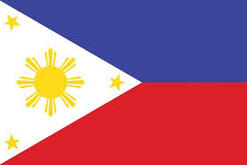
Employee ExpectationsIn the Philippines, employees value a supportive and inclusive work environment, rooted in bayanihan (community spirit) and pakikisama (smooth interpersonal relationships). Job security and long-term employment are important, along with benefits like paid leaves and bonuses. Filipino workers appreciate companies that offer training and career growth, reflecting malasakit (care and empathy) for their development. Employers who reward loyalty, embodying utang na loob (debt of gratitude), and embrace celebrations of personal and cultural milestones foster strong employee engagement.
Work Ethic and EnvironmentFilipino employees are known for their strong work ethic, showing sipag (diligence) and tiyaga (perseverance), often going the extra mile to complete tasks. Teamwork is highly valued, and employees work well in groups, supporting each other to achieve shared goals.The workplace in the Philippines is community-oriented, with a strong sense of camaraderie. Social interactions, both in and out of the office, are common, fostering a sense of belonging and mutual support among colleagues.
Communication StyleCommunication in the Filipino workplace is often indirect and nuanced, as they tend to avoid confrontation, reflecting the cultural value of hiya (sense of shame) and a desire to maintain harmony. Concerns are typically expressed subtly to preserve pakikisama (smooth interpersonal relationships). This can sometimes lead to misunderstandings if not carefully managed. Managers should be attuned to these nuances and create a space where employees feel safe to express themselves openly.
Managerial RelationshipsThe relationship between employees and managers in the Philippines is typically characterized by respect and paggalang (deference). Filipino employees often show a high level of respect for authority and may hesitate to openly disagree with superiors. However, this doesn't mean they are passive; employees appreciate managers who are approachable, empathetic, and communicative. A manager who listens, shows malasakit (care and empathy), and provides constructive feedback is likely to earn their respect and loyalty.
Cultural InfluencesCorporate culture in the Philippines is shaped by respect for hierarchy, collectivism, family values, and the influence of Catholicism. These are reflected in the workplace through kapwa (shared identity), kapatiran (camaraderie), and faith-based values like compassion and community.Filipino employees often view the workplace as an extension of their family, fostering loyalty and support among coworkers. Personal relationships, grounded in trust and shared beliefs, significantly impact professional dynamics.
Adaptability and ResilienceFilipino employees are highly adaptable and resilient. They can quickly adjust to changes and are often resourceful in finding solutions to problems. This adaptability is a significant asset in dynamic and fast-paced work environments.
Filipino Employees: Skills and Industry Expertise
Strong English Proficiency:With strong English skills, Filipino employees are well-equipped for international business roles that require clear communication. Their fluency makes them ideal for positions in customer service, BPO (Business Process Outsourcing), and other roles where effective interaction with global clients is essential.Customer Service and BPO Expertise:The Philippines stands out as a top destination for BPO services. Filipino workers are renowned for their exceptional customer service, characterized by patience, professionalism, and a strong ability to resolve complex issues efficiently, helping the country maintain its leadership in the outsourcing sector.Technical Skills and IT:Filipino workers excel in IT and software development, with a growing pool of professionals skilled in programming, software development, and IT support services.Healthcare and Medical Services:The Philippines is known for its skilled healthcare workforce, particularly nurses and medical practitioners, who are valued globally for their expertise and compassion in various healthcare settings.Creative Industries:Filipinos are also recognized for their contributions to creative industries such as graphic design, animation, and content creation, with their talent being appreciated worldwide.
Remote Jobs commonly held by Filipinos:
Salaries in US dollars and compared to average salaries in the US
| Job Title | Philippines (Monthly) | US (Monthly) |
|---|---|---|
| Customer Service Representative | $400 - $1,000 | $4,292 - $5,233 |
| Virtual Assistant | $400 - $1,200 | $3,500 - $5,000 |
| Technical Support Specialist | $600 - $1,200 | $4,779 - $5,876 |
| Data Entry Specialist | $350 - $750 | $3,333 - $5,000 |
| Content Writer | $450 - $900 | $4,250 - $6,500 |
| Social Media Manager | $600 - $1,200 | $4,583 - $7,500 |
| Graphic Designer | $500 - $1,100 | $5,000 - $7,083 |
| Web Developer | $500 - $3,000 | $5,833 - $8,750 |
| Accounting | $370 - $850 | $4,615 - $6,615 |
| HR Specialist | $440 - $880 | $4,167 - $6,667 |
| SEO Specialist | $500 - $1,500 | $4,333 - $6,250 |
| Video Editor | $450 - $1,000 | $4,000 - $6,500 |
| Project Manager | $600 - $1,500 | $6,000 - $8,500 |
| Bookkeeper | $400 - $900 | $3,500 - $5,500 |
| Customer Success Specialist | $500 - $1,200 | $4,500 - $7,000 |
| Online English Teacher | $400 - $800 | $2,917 - $4,583 |
| Digital Marketing Specialist | $500 - $1,500 | $5,000 - $7,500 |
| Transcriptionist | $400 - $800 | $2,500 - $4,167 |
| E-commerce Specialist | $500 - $1,200 | $4,583 - $7,083 |
| Medical Coder | $600 - $1,500 | $4,583 - $6,250 |
| Software Engineer | $1,000 - $2,500 | $7,083 - $10,000 |
Want to fill a role that's not in the list? Feel free to email us at [email protected]!
Hiring Vietnamese People:
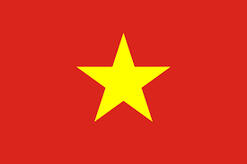
Employee ExpectationsVietnamese employees prioritize job stability, career growth, and competitive compensation, with benefits like health insurance, bonuses, and paid leave being key. They value clear communication about career paths and transparent promotion processes.Cultural factors also shape expectations. Coffee culture fosters informal work discussions, and employees expect extended time off during Tết (Lunar New Year). Offering “lì xì” (red envelopes) during festive occasions builds loyalty, while family values often influence career decisions.
Work Ethic and EnvironmentVietnamese employees are known for their strong work ethic, reliability, and willingness to put in extra hours to complete tasks.The work environment emphasizes group harmony and cooperation. Social interactions and team-building activities foster camaraderie and mutual support, boosting productivity and job satisfaction. A unique aspect in Vietnam is the practice of sharing communal meals during work breaks, where colleagues often eat together, strengthening team bonds and promoting a family-like atmosphere in the workplace.
Communication StyleCommunication in the Vietnamese workplace tends to be indirect and subtle, with employees often avoiding direct confrontation. Concerns are expressed in a reserved manner. A unique aspect in Vietnam is the use of non-verbal cues, such as avoiding eye contact, which is often a sign of respect or deference to authority, rather than disinterest. Understanding these cues can improve communication and mutual respect in the workplace.
Managerial RelationshipsThe relationship between employees and managers in Vietnam is typically hierarchical. Deep respect for authority and seniority is a cultural norm. Employees often show deference to their managers and might avoid openly disagreeing with them. However, employees also appreciate managers who are approachable, supportive, and fair. Managers who balance authority with empathy and open communication tend to be more effective and earn their employees' loyalty and respect.
Cultural InfluencesConfucian values significantly influence Vietnamese corporate culture, emphasizing respect for hierarchy, loyalty, and collective well-being. These values create a strong sense of loyalty to the company and prioritize group harmony.Employees often see their workplace as an extension of their social and familial networks. Personal relationships are important in professional interactions, and maintaining harmony and face (dignity and reputation) is crucial. This cultural context often means that employees prioritize group consensus over individual expression.
Adaptability and ResilienceVietnamese employees are highly adaptable and resilient, quickly adjusting to changes and finding resourceful solutions to challenges. A unique trait is their ability to maintain composure under pressure, which stems from a cultural emphasis on patience and perseverance in the face of difficulties.
Vietnamese Employees: Skills and Industry Expertise
English Proficiency:English proficiency is emphasized in education, making Vietnamese workers valuable for international business, particularly in IT and technical roles. A unique aspect is that younger employees often excel in communication with global teams, as they are more exposed to Western media and technology.Technical Skills and IT:Vietnam is emerging as a key player in the tech industry, with employees known for their strong skills in IT, software development, and engineering. A unique advantage is the enthusiasm for continuous learning, especially among younger tech workers who actively seek opportunities to stay updated with the latest technologies and trends.Manufacturing and Engineering Expertise:Vietnam has a robust manufacturing sector, and employees are skilled in various aspects of manufacturing and engineering. From electronics to textiles, Vietnamese workers are recognized for their technical know-how and ability to produce high-quality products.Customer Service and BPO:Similar to the Philippines, Vietnam is developing a strong presence in the BPO industry. Vietnamese employees are known for their customer service skills, problem-solving abilities, and efficiency in handling customer interactions, making the country an emerging destination for outsourcing services.Agriculture and Food Processing:Vietnam is one of the world's leading producers of agricultural products such as rice, coffee, and seafood. Employees in this sector are experienced in modern agricultural practices and food processing, contributing significantly to the global supply chain.
Remote Jobs commonly held by Vietnamese:
Salaries in US dollars and compared to average salaries in the US
| Job Title | Vietnam (Monthly) | US (Monthly) |
|---|---|---|
| Software Developer | $3,000 - $4,500 | $7,083 - $9,167 |
| Mobile App Developer | $950 - $2,500 | $6,675 - $7,275 |
| Digital Marketer | $708 - $1,250 | $4,583 - $6,667 |
| Graphic Designer | $500 - $1,200 | $3,500 - $5,500 |
| IT Support and Helpdesk | $500 - $1,000 | $3,000 - $4,500 |
| E-commerce Manager | $600 - $1,500 | $4,000 - $7,000 |
| Data Entry | $400 - $800 | $2,000 - $3,500 |
| Social Media Management | $500 - $1,200 | $3,000 - $5,000 |
| SEO Specialist | $600 - $1,300 | $3,500 - $6,000 |
| Video Editing | $600 - $1,200 | $3,500 - $5,500 |
| Accounting and Bookkeeping | $500 - $1,000 | $3,000 - $4,500 |
| Market Research | $600 - $1,300 | $4,000 - $6,500 |
Want to fill a role that's not in the list? Feel free to email us at [email protected]!
Hiring Taiwanese People:
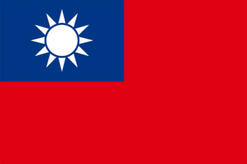
Employee ExpectationsIn Taiwan, employees expect a stable and respectful work environment, with opportunities for career growth and competitive compensation. Job security is highly valued, and employees seek long-term employment with comprehensive benefits such as health insurance, bonuses, and paid leave. Professional development and training programs are important as they offer clear pathways for career advancement.
Work Ethic and EnvironmentTaiwanese emphasizes the importance of “guānxì” (關係), or building strong personal relationships and networks, which plays a critical role in fostering trust and collaboration among colleagues and managers. Employees often seek to maintain harmonious relationships and value long-term connections in the workplace. The concept of "saving face" is also crucial, with an emphasis on respect and avoiding direct confrontation to maintain a positive and respectful atmosphere.
Communication StyleIn Taiwan, workplace communication is typically indirect, with employees avoiding confrontation and expressing concerns subtly to maintain harmony. Managers who respect this style can create an environment where employees feel comfortable speaking up, improving overall communication.
Technical SkillsTaiwanese employees are known for their strong technical skills, particularly in the fields of engineering, information technology, and manufacturing. Taiwan is renowned for its high-tech industry, and many employees have expertise in areas such as semiconductor manufacturing, electronics, and computer engineering. Additionally, skills in software development, data analysis, and automation are highly valued and commonly found among the Taiwanese workforce.
Managerial RelationshipsThe relationship between employees and managers in Taiwan is characterized by a blend of respect for hierarchy and a preference for collaborative leadership. Employees often show respect for authority and may be hesitant to openly challenge their superiors. However, they appreciate managers who are approachable, fair, and supportive. Effective managers in Taiwan are those who encourage open communication, provide clear guidance, and foster a positive work environment.
Cultural InfluencesConfucian values deeply influence Taiwanese corporate culture, stressing respect for hierarchy, loyalty, and collective well-being. This fosters strong loyalty to the company and prioritizes group harmony. Employees often view the workplace as an extension of their social and familial networks, where personal relationships play a key role. Maintaining harmony and "face" (dignity and reputation) is crucial, leading employees to prioritize group consensus over individual expression.
English Language SkillsTaiwanese employees often have strong English skills, especially in urban areas and multinational companies. The government's "Bilingual 2030" initiative aims to enhance English proficiency, particularly in sectors like technology, finance, and international trade. While English is common in business, understanding local cultural nuances, such as indirect communication and respect for hierarchy, remains essential for effective collaboration.
Adaptability and ResilienceTaiwanese employees are highly adaptable and resilient. They can quickly adjust to changes and are resourceful in finding solutions to challenges. This adaptability is valuable in dynamic and fast-paced work environments.
Taiwanese Employees: Skills and Industry Expertise
Technical Skills and IT:Taiwan is a global leader in the tech industry, with employees excelling in information technology, software development, and engineering. Taiwanese professionals are skilled in various programming languages, software development, and IT support services, making them highly valuable in tech-driven industries.Manufacturing and Engineering Expertise:Taiwan has a robust manufacturing sector, particularly in electronics and semiconductors. Taiwanese employees are known for their expertise in high-tech manufacturing processes, engineering, and quality control, contributing significantly to the global supply chain.Research and Development:Taiwanese employees are also recognized for their strengths in research and development (R&D). The country invests heavily in innovation, and its workforce is skilled in developing new technologies, products, and processes, driving advancements in various industries.Healthcare and Biotechnology:Taiwan has a growing presence in the healthcare and biotechnology sectors. Employees in these fields are known for their expertise in medical research, pharmaceuticals, and biotech innovations, making significant contributions to global health advancements.English Proficiency:Taiwanese employees often possess strong English language skills, which is particularly beneficial in international business and multinational corporations. Their proficiency in English facilitates communication in global markets and enhances their value in international trade and business services.
Remote Jobs commonly held by Taiwanese:
Salaries in US dollars and compared to average salaries in the US
| Job Title | Taiwan (Monthly) | US (Monthly) |
|---|---|---|
| Software Engineer | $2,500 - $5,000 | $7,083 - $10,000 |
| Web Developer | $2,083 - $4,167 | $5,833 - $8,750 |
| App Developer | $2,500 - $4,583 | $5,833 - $9,167 |
| Data Scientist | $2,917 - $5,417 | $6,667 - $10,833 |
| SEO Specialist | $1,667 - $3,333 | $4,333 - $6,250 |
| Social Media Manager | $2,083 - $3,750 | $4,583 - $7,500 |
| Graphic Designer | $1,667 - $3,333 | $3,750 - $6,250 |
| UI/UX Designer | $2,083 - $4,167 | $5,417 - $8,750 |
| Illustrator | $1,667 - $2,917 | $3,333 - $5,833 |
| Translator | $1,250 - $2,500 | $3,333 - $5,833 |
| Localization Specialist | $1,667 - $3,333 | $4,583 - $7,500 |
| Technical Support Specialist | $1,500 - $2,833 | $3,333 - $5,833 |
Want to fill a role that's not in the list? Feel free to email us at [email protected]!

